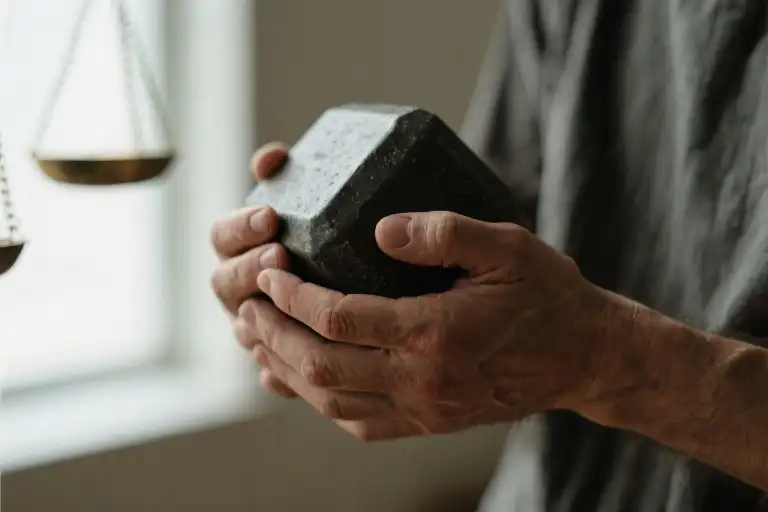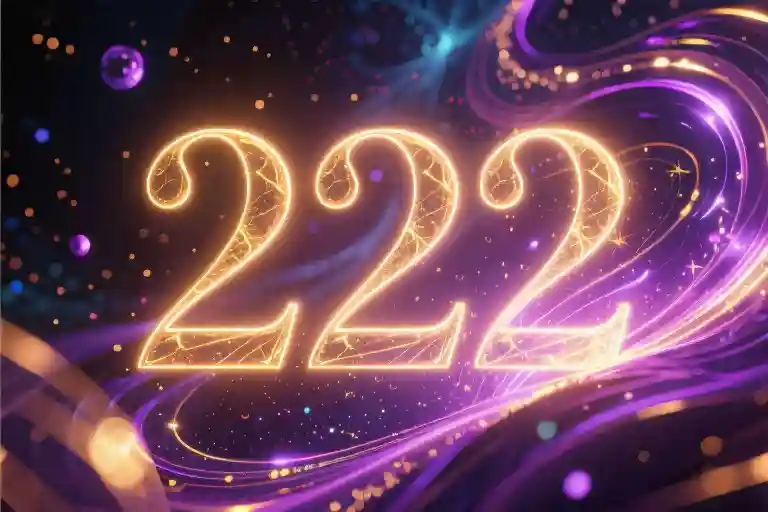The weight of effort settles into your bones long before your mind acknowledges it. I woke up this morning with my shoulders remembering last night’s work—not the content, not the progress made, just the dull ache of having tried. Again. The kind of fatigue that lingers in your knuckles and spine, a physical ledger of hours spent pushing against something invisible.
We keep ledgers for everything else—bank accounts, grocery lists, birthdays we might forget—but no one teaches us how to account for effort. No column for the nights you stayed up rewriting the same paragraph until the words blurred. No entry for the meetings where you spoke up even as your voice shook. No balance sheet that shows what you’ve poured into relationships that never quite reciprocated.
Here’s the unspoken contract we all signed somewhere along the way: if you work until your hands cramp, study until your vision swims, love until your ribs feel hollow—the world will recognize it. Not necessarily with applause or promotions, but with some quiet nod of acknowledgment that says I see what you’re doing here.
But the nod never comes. Or it comes for someone else—the colleague who half-assed the project but charmed the room, the friend who forgets birthdays but gets celebrated for ‘keeping it real’. Meanwhile, you’re collecting invisible merit badges: Tried Hardest, Showed Up Again, Cared Too Much.
I used to think this was about fairness. Now I realize it’s about language—we simply don’t have the right vocabulary to talk about effort that doesn’t translate into visible success. We say ‘hard work pays off’ as if effort is a vending machine where you put in enough sweat and out drops achievement. But some of us keep feeding the machine long after it’s eaten our last coin.
There’s a particular loneliness to this kind of striving. Not the dramatic solitude of artists or explorers, but the quiet strain of ordinary people doing their best in systems not designed to measure it. You can spot us by the way we pause too long before answering ‘How are you?’—that fractional hesitation where we consider telling the truth about the weight we’re carrying.
What if we measured differently? Not by outcomes or external validation, but by the quiet markers we usually ignore: The morning you got up anyway. The kindness you extended without audience. The small, stubborn act of continuing. These don’t make résumés or get Instagrammed, but they’re the real currency of a life—the kind that accumulates interest even when no one’s watching.
Maybe effort isn’t what bridges the gap between who you are and who you want to be. Maybe it’s what builds the person strong enough to stand in that gap without crumbling. Not a means to an end, but the becoming itself.
The Body Remembers What the Mind Forgets
Your hands shake when you finally stop typing at 3 AM. Not from caffeine, but from the accumulated tension of six straight hours willing sentences into existence. Your shoulders carry a permanent hunch, the kind that massage therapists sigh at. There’s a particular ache in your lower back that only develops after the third consecutive month of working weekends. These aren’t just discomforts – they’re hieroglyphs carved into your flesh, a physical record of effort no one else can read.
I used to believe exhaustion had a uniform quality, that tiredness felt the same whether from climbing mountains or pushing papers. But there’s a distinct species of fatigue bred by sustained effort without visible progress. It settles differently – not in your eyelids, but in the marrow. Not the pleasant soreness of a good workout, but the ominous creak of overburdened floorboards.
Watch people who seem to glide through success. Notice how their movements lack that subtle hesitation, that micro-pause where the body debates whether it can withstand another push. Their energy isn’t spent on convincing themselves to continue – it simply flows. Meanwhile, you ration yours like wartime provisions, calculating how much can be spent today without jeopardizing tomorrow’s minimum functionality.
Why does effort distribute itself so unevenly? The question lingers in the tremor of your fingers as you reach for the tenth coffee. It echoes in the way your jaw clenches during sleep, grinding down unspoken frustrations. Your body keeps score in ways your conscious mind refuses to: the twinge in your wrist that flares during moments of self-doubt, the tension headache that arrives precisely at the hour when motivation wanes.
Medical scans wouldn’t show these markings. There’s no X-ray for accumulated effort, no blood test measuring hope deferred. Yet the evidence surrounds you – the unfinished projects humming with potential, the notebooks filled with ideas that never found wings, the browser tabs left open like unmarked graves of abandoned research.
We speak of ‘giving’ our all, but the phrase misleads. Effort isn’t given – it’s metabolized. Your body converts time and hope into action the way lungs process air, leaving invisible residues. The real question isn’t whether you’re trying hard enough, but whether you’ve developed the capacity to detect these subtle exchanges. Can you feel the quiet transformation occurring beneath the surface of visible results?
Perhaps success seems effortless for others because we’re comparing their highlight reels to our behind-the-scenes footage. Or maybe some people genuinely don’t feel the weight we do – their bones are simply built differently. But this much is true: your body’s resistance isn’t proof of weakness. That ache in your shoulders? It’s the architecture of perseverance being assembled, one stubborn vertebra at a time.
The Broken Economy of Effort
The contract we’ve all signed in invisible ink says this: work hard enough, and the world will pay you back in kind. But somewhere between the late nights and the early mornings, between the rejected proposals and the ignored emails, that contract starts to fray at the edges. You begin noticing the fine print nobody mentioned – the clauses about luck, timing, and all the invisible currencies that actually determine who gets ahead.
I once watched a colleague get promoted after six months while others with years of service remained stuck. Their secret? Not better work, but better connections. This isn’t bitterness talking – it’s the quiet realization that effort alone doesn’t operate the machinery of reward. We’re all participants in what might be called ‘effort inflation’ – where everyone is trying harder, making the baseline expectation rise until extraordinary effort becomes ordinary.
Consider the research from the University of Sussex showing that 72% of employees believe workplace advancement depends more on visibility than actual contribution. Or the McKinsey study revealing that middle managers spend 40% of their time on ‘performance theater’ – work designed to be seen rather than work that drives results. These aren’t exceptions; they’re the operating system of modern professional life.
Yet we keep feeding coins into this broken vending machine, expecting different results. Why? Because the alternative – accepting that effort and reward exist in separate universes – feels like surrendering to chaos. It’s easier to believe we just haven’t tried hard enough than to face the terrifying truth: that meritocracy might be the most beautiful fiction we’ve ever told ourselves.
This isn’t about dismissing hard work. It’s about recognizing that effort is necessary but not sufficient – like bringing flour to a bakery and wondering why it doesn’t automatically become bread. The other ingredients – opportunity, circumstance, systemic advantages – don’t make for inspiring motivational posters, but they determine outcomes more than we’d like to admit.
Perhaps what we need isn’t more effort, but better effort. Not grinding harder, but grinding smarter. Not just putting in hours, but identifying which hours actually count in the economy that exists rather than the one we wish existed. Because when you understand the actual rules of the game, you can stop blaming yourself for not winning by rules nobody ever actually followed.
The Quiet Light of Invisible Growth
We measure our days in visible achievements – promotions secured, projects completed, milestones reached. But what about the growth that happens in the shadows? The kind that doesn’t come with certificates or congratulations, the slow accumulation of resilience that only reveals itself when life demands you bend but not break.
There exists an entire economy of personal development that operates outside society’s recognition systems. Call it invisible growth – those subtle shifts in how you handle disappointment, the extra second you take before reacting in anger, the way you now recognize burnout’s early signs. These don’t make LinkedIn posts, but they rebuild you from the inside out.
Recognizing Your Unseen Progress
Try this: think back to how you handled setbacks a year ago versus now. The difference might be invisible to others, but you know. That’s the paradox of meaningful growth – the more profound the change, the less dramatic it appears. Like tree rings forming beneath bark, your most important developments often leave no surface marks.
Psychologists call this ‘latent learning’ – skills and insights that mature unnoticed until circumstances demand them. That meeting where you stayed calm under unfair criticism? That came from a hundred invisible rehearsals in your mind. The difficult conversation you navigated with unexpected grace? That was your hidden emotional labor finally paying interest.
The Daily Practice of Noticing
Keeping an Invisible Growth Journal changed how I value my efforts. Each evening, I note three things:
- A challenge handled better than before (no matter how slight the improvement)
- An old pattern I didn’t repeat
- A moment of clarity about what truly matters to me
At first, the entries felt insignificant – ‘Didn’t check work email during dinner’, ‘Took a deep breath when the train was delayed’. But over months, these small acknowledgments rewired my brain to recognize progress beyond productivity metrics. The journal became proof that effort compounds differently than society’s reward systems suggest.
When the World Doesn’t See Your Growth
We live in a culture that applauds fireworks but ignores embers. Yet it’s the slow-burning embers that keep us warm through life’s long nights. Your boss might not notice your increased patience. Your followers won’t celebrate your healthier boundaries. But these quiet evolutions are the foundation upon which visible successes eventually stand.
Consider the bamboo tree’s first years – all growth happens underground, building an extensive root system before any visible sprout appears. Your current efforts may feel similarly unseen, but they’re creating the infrastructure for what will eventually break surface. The world measures height, but survival depends on depth.
Redefining Enough
Perhaps we’ve been asking the wrong question. Instead of ‘Was my effort enough to succeed?’, try ‘Did my effort make me more of who I want to be?’ This shifts the valuation from external approval to internal alignment. Some days, simply continuing when every fiber wants to quit is the most meaningful growth possible.
There’s a particular strength that comes from valuing your unseen progress. It’s the kind of confidence that doesn’t require applause, the sort of resilience that’s grown in private and can’t be taken away in public. These are the currencies that never devalue, the investments that always yield returns – just not always on others’ timelines.
Your invisible growth matters precisely because no one is keeping score. These are the changes you make for yourself, not for the audience. And that makes them the most authentic transformation of all.
The Quiet Victory of Showing Up
The first time I celebrated myself for simply continuing, it felt absurd. I’d just spent another evening staring at rejection emails for a writing submission, the kind that pile up like unpaid bills. My fingers still ached from typing; my shoulders carried that particular stiffness that comes from hours hunched over a keyboard. But instead of tallying failures as usual, I made tea and whispered to no one in particular: ‘You showed up again.’
This became my private ritual – acknowledging the act of persistence separate from outcomes. I began noticing how we’ve been conditioned to measure effort only by its visible fruits: promotions, publications, social media milestones. But what about the silent victories? The mornings you work despite self-doubt, the projects you finish even when no one’s watching, the boundaries you set to protect your energy – these are the real architecture of growth.
A friend who trained for years as a classical pianist once confessed something revolutionary. ‘My biggest achievement wasn’t winning competitions,’ she said, tracing the calluses on her fingertips. ‘It was continuing to love the music after constantly being told I wasn’t good enough.’ Her hands remembered every scale, every repetition, not as wasted time but as dialogue between her and the art itself.
We need new metrics. Not ‘did this work?’ but ‘did this change me?’ Not ‘was I rewarded?’ but ‘was I authentic?’ The corporate trainer who keeps refining workshops despite low attendance is developing facilitation skills no spreadsheet can capture. The parent reading bedtime stories after exhausting shifts is building emotional bonds that won’t appear on any assessment. These are the currencies that compound in secret.
Try this tonight: inventory your invisible growth. Maybe you handled criticism without crumbling. Maybe you paused instead of reacting angrily. These micro-evolutions are your true curriculum vitae. The world might still measure in trophies and metrics, but you’re learning to read the subtler handwriting of your own becoming.
Somewhere between giving up and burning out lies the sacred middle ground – showing up not because you’re guaranteed success, but because the act itself whispers who you’re becoming. That’s the quiet victory no one can take from you.
The Weight of Hope
Hope is a peculiar kind of gravity. It pulls at you with a force that’s both comforting and cruel, anchoring you to possibilities while simultaneously weighing down your shoulders with their uncertainty. I’ve come to understand hope not as the featherlight thing we often imagine, but as something far denser – a stone we carry in our pockets, smoothing its edges with our restless fingers through countless nights of wondering.
There’s an exhaustion that comes from this particular labor, different from the tiredness of physical effort. It’s the fatigue of maintaining belief when evidence suggests otherwise, of continuing to water plants you can’t see grow. Some days it feels like hope is the heaviest part of trying – heavier than the late nights, heavier than the rejections, heavier than starting over for the seventeenth time. Because effort at least has clear parameters: you know when you’ve given your all. But hope? Hope asks you to keep the faith when you can’t measure progress, when the world gives no signals, when even your own mind turns traitor with doubts.
I’ve watched hope do strange things to people. It breaks some – you see it in the way their posture collapses when they whisper ‘maybe next time’ for the hundredth next time. But others? Others seem to metabolize this weight differently. The same pressure that crushes some becomes ballast for others, keeping them steady through storms that would otherwise capsize them. I don’t think it’s a matter of strength, not really. More about how we choose to carry what we’ve been given.
What’s fascinating is how hope reshapes itself over time. The bright, brittle hope of early efforts – that quick-flaring thing that needs constant validation – either burns out or transforms into something quieter but more durable. It becomes less about external validation and more about an internal compass. Less ‘Will this work?’ and more ‘Is this still true to who I am?’ This matured hope has calluses. It knows how to wait.
Perhaps this is why continuing matters, even when we can’t see results. Not because persistence guarantees success (it doesn’t), but because the act of carrying hope changes us in ways success never could. Every time we choose to continue despite uncertainty, we’re building a particular kind of resilience – one that can’t be taught, only earned. The roots we grow during these seasons may be invisible, but they’re what keep us standing when the winds change.
So yes, hope is heavy. But it’s the good kind of weight, the kind that reminds you you’re alive and fighting for something. And if you’re feeling particularly crushed today? That doesn’t mean you’re failing. It just means you’re human enough to feel the full weight of what you’re carrying. Set it down for a moment if you need to. The remarkable thing about hope is that when you’re ready, it will still be there waiting – not lighter, perhaps, but easier to bear.





